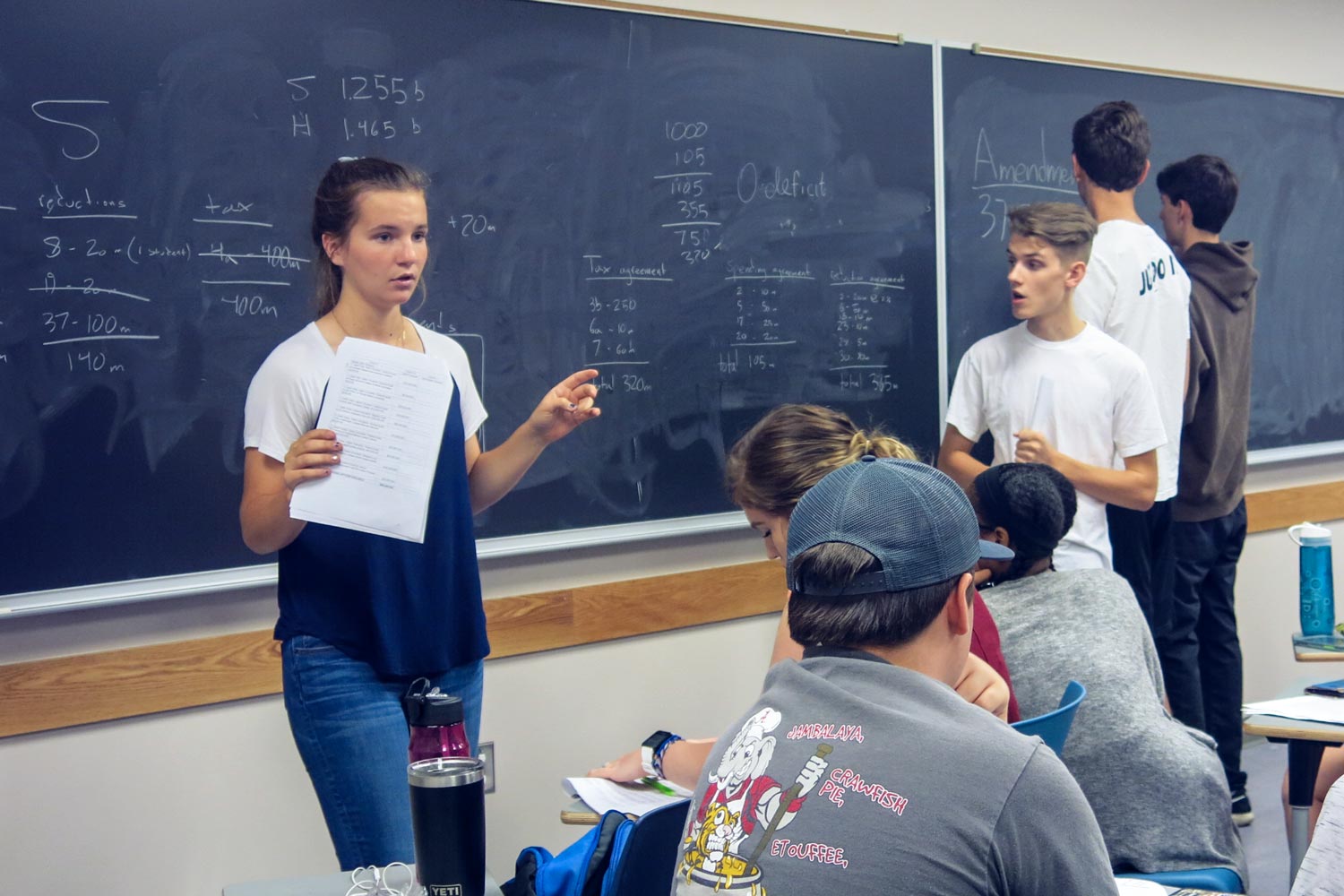High school class projects usually don’t have very long shelf lives, which is what makes the work of students in a time-honored summer program at the University of Virginia’s Sorensen Institute for Political Leadership so impressive.
Over the years, a number of the class projects emanating from Sorensen’s High School Leaders Program have turned into state laws.
Yes, that’s right: high school students from across the commonwealth have been teaming up to create actual legislation. The Sorensen program strives to make clear to students that they – and all Virginians – can take an active role in crafting the policy of our state, said Tom Walls, the institute’s executive director.
One of last summer’s cohorts wrote a bill proposing mandatory mental health education in public schools that was sponsored by state Sen. Creigh Deeds (D-Bath County) and signed into law last month.
The 31 students who took part in this summer’s recently completed program are hoping to pass legislation of their own. During the program, the students broke into five groups and received succinct instructions from Walls and Marc Johnson. Johnson serves as executive director for global affairs at UVA’s Darden School of Business and designed the classroom curriculum for the Sorensen High School Leaders program. The student’s program also includes a broad array of speakers and field trips, assembled by Sorensen’s associate director, Lauren Gilbert.
“We told the students that the proposed legislation has to address a real problem and has to offer a real solution,” said Walls, a former staff member to three U.S. senators, most recently as chief counsel to Sen. Mark Warner of Virginia. “We’re neutral about the ideology of their ideas, but we demand that they present them in a substantive way, and that they can defend them with facts and argument.”
To that end, here are the five proposals that the 10th- through 12th-graders presented July 21 at the conclusion of the two-week program to a panel headed by Walls and Johnson in the Rotunda Dome Room.
1. Hunting Ammunition
The proposal: Ban the use of lead in bullets and shotgun shells, which the team claims causes environmental hazards and poses health risks for people who eat venison or birds.
Wall’s take: “I thought they anticipated the political challenges well because any kind of regulation of firearms or ammunition is politically sensitive. They were able to cite support within the hunting community for this and give available alternatives for other kinds of ammunition. It was a very well-done project that identified a very discrete problem. It had a discrete solution. And it had a politically realistic approach to addressing it.”
2. School Security
The proposal: Require schools to consult and collaborate with local emergency services to create their safety plans.
Wall’s take: “What is good about it is it addresses a need and avoids political pitfalls. They presented it in a way that you could very much imagine it being adopted. They were prepared with questions about the likely cost and with questions about how one county’s needs may be different than another’s.”

On the last day of the two-week program, students presented their group projects in the Rotunda Dome Room. (Contributed photo)
3. Expansion of Hate Crime Law
The proposal: Expand the reach of the existing hate crimes laws to include crimes against people with disabilities.
Wall’s take: “One of the issues the students addressed was, ‘What’s the difference between a person who hits a disabled person on the head so he can steal their wallet versus somebody who hits them on the head because he hates people with disabilities?’ Should the law treat them differently? They addressed all of that and showed some understanding of coalition-building.”
4. Improved School Bus Security
The proposal: Put video cameras on the stop-arms of school buses, enabling police to ticket drivers who don’t stop.

Wall’s take: “The kids made the case that it would boost safety, but then they were questioned at length about how much it was going to cost and how it would work for rural districts, where the buses maybe go miles between stops, and urban districts, where they stop every few blocks, and they had pretty good answers. They were able to make an argument that it would be revenue-neutral or maybe even revenue-positive because everybody the cameras catch would have to pay a fine. They also proposed increasing the fine from $250 to $500.”
5. Tax on Vaping Products
The proposal: A tax on the modules that go inside electronic cigarettes.
Wall’s take: “They had a lot of good facts and figures about how much the use of these products has gone up, how they’re made, what’s in them and how much revenue could be generated from a tax. They understood some subtle distinctions between vaping products and cigarettes as a practical political matter.”
At the conclusion of the class, Walls and Johnson provided guidance on the ensuing steps in the legislative process. It’s now up to the students how far they want to take it.
Judging from past history, that’s usually pretty far.
“These kids,” Walls said, “aren’t kidding around.”
Click here for more information about the program.
Media Contact
Article Information
August 2, 2018
/content/sorensen-program-5-youth-proposals-could-become-laws

